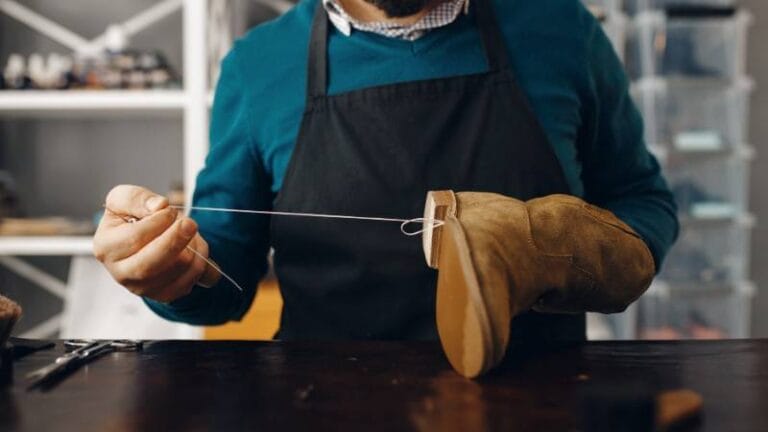Did you know that the footwear industry contributes significantly to our planet’s waste problem? Recent statistics reveal a 300 million pairs of shoes (only by Americans) end up in landfills every year.
Now, I’ve always believed that every step we take (pun intended!) can make a difference in our journey towards sustainable living. And speaking of steps, there’s a game-changer in the footwear world that I’m excited to share with you: repairable shoes.
By choosing to repair, we’re actively reducing waste and making a stand against the throwaway culture that’s become all too common.
And guess what?
Some fantastic repairable shoe brands are leading this sustainable revolution, making it easier for folks like us to tread lightly on our planet.
In today’s blog, I’ll dive deep into the importance of repairable shoes in the modern era and introduce you to some brands that are making waves in the sustainable living community.
So, lace up, my friend, and let’s embark on this journey together!
What Is A Repairable Shoe?
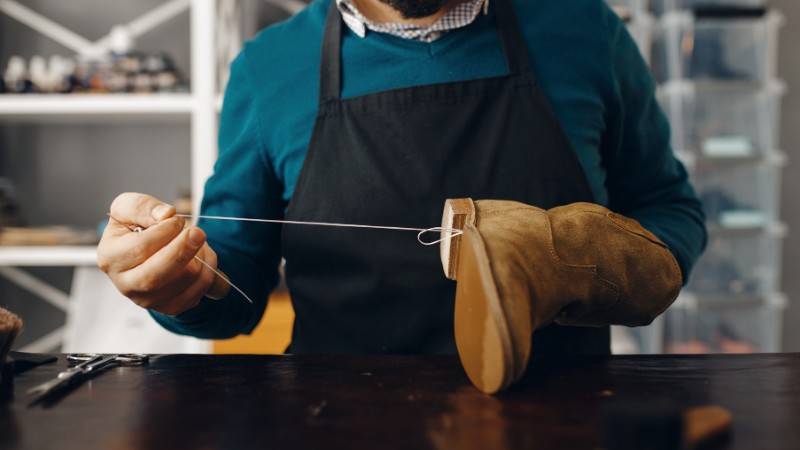
When I first delved into the world of sustainable living, I was astounded by the sheer variety of repairable shoes available. But what exactly is a repairable shoe?
Most shoes, from classic street sneakers to high heels, can be repaired to some extent. The best repairable shoes are often those made with durable and sturdy materials, like leather boots or dress shoes. Casual shoes, especially those with leather uppers or suede uppers, are also prime candidates for repair.
Even athletic shoes, which many discard after wear, can often be mended. Brands like Nike started offering repair services for their athletic shoe lines.
However, it’s not just about the type of shoe. The materials play a pivotal role. Shoes made from sustainable materials, like recycled rubber or recycled plastic bottle components, are not only eco-friendly but often designed with repair in mind.
For instance, a UK-based shoe brand might use wild hide leather or full grain leather, ensuring longevity and ease of repair.
What Shoes Can Your Local Cobblers Repair?
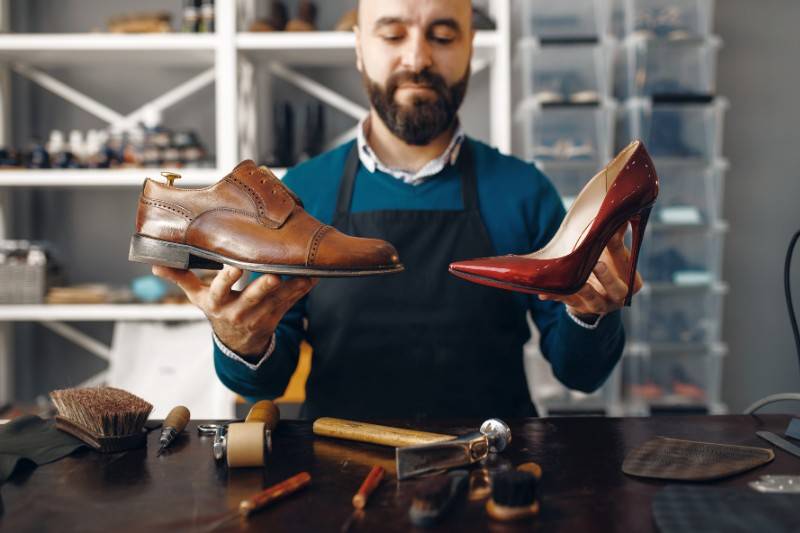
Your local cobbler is a treasure trove of expertise. From scuffed or stained leather to worn-out rubber soles, they’ve got you covered.
Common shoe repairs include:
- Replacing heel tips on high heels.
- Mending leather uppers on dress boots or dress shoes.
- Replacing waxed cotton laces that wear out.
- Waterproofing and adding shine to dark shoes.
- Adjusting the boot shafts for a better fit.
And that’s just scratching the surface. More extensive repairs, like addressing issues with the toe box or adding padding for added comfort, are also within their wheelhouse.
Can't You Repair All Shoes?
While cobblers work magic on many shoe issues, there are limits.
For instance, shoes made from certain synthetic fabrics or with plastic soles might be challenging to mend. Similarly, if the shoe’s foundational structure is compromised, like in some cheap shoes, it might be time for a new pair.
However, before you discard those old shoes, consider shoe donations or recycling options to maintain an environmentally friendly wardrobe.
What About Resoling Old Shoes?
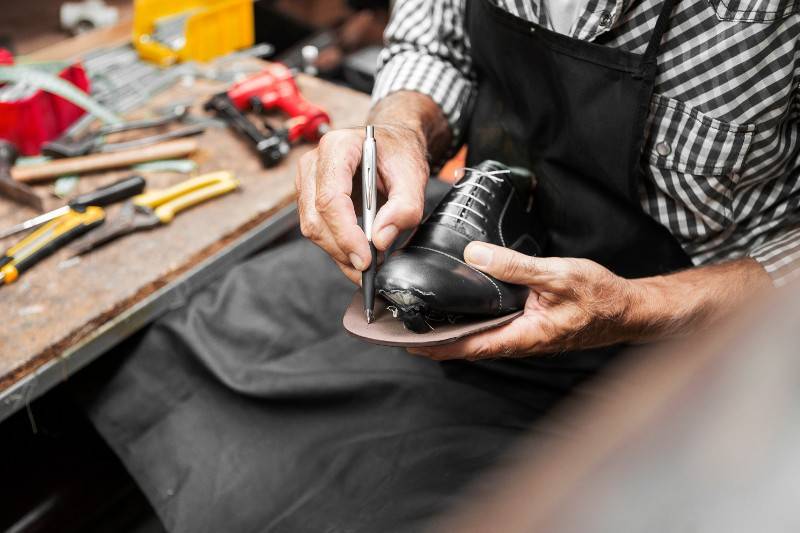
Resoling shoes, be it dress shoes, repairable sneakers, or even running shoes, can significantly extend their lifespan.
Not only does it save money in the long run, but it also contributes to a more sustainable lifestyle.
Think about it: instead of buying new shoes every year, you can invest in high-quality shoes and resole them. This will surely reduce waste and promote a more environmentally friendly wardrobe.
Repairable shoes, from repairable women’s shoes to repairable men’s shoes, are a testament to the sustainable shift in the footwear industry. By choosing repairable shoe brands and understanding the ins and outs of shoe repairs, we’re taking a step (or many!) toward a greener future.
Key Features of Repairable Shoes
As someone deeply passionate about sustainable living, I’ve often found myself in awe of the innovation behind such shoes.
These aren’t just any footwear; they’re thoughtfully designed with features that make them stand out in the crowded shoe market.
Materials That Make a Difference
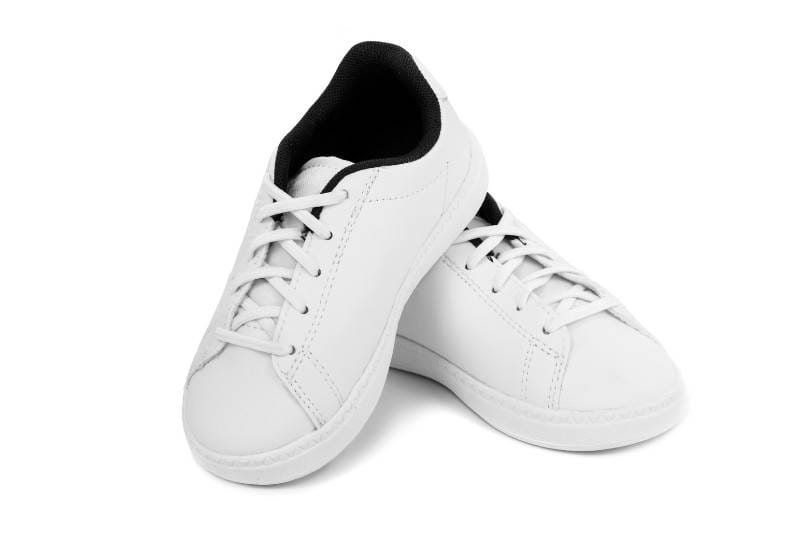
The heart of any repairable shoe lies in its materials. Brands committed to sustainability often opt for materials that not only last longer but also have a minimal environmental footprint.
For instance, organic cotton and recycled rubber are becoming increasingly popular in the best repairable shoes.
The good news is that some brands are also making plant-based materials which are biodegradable. Allbirds is leading the industry with such sustainable materials.
These materials not only reduce waste but also ensure that the shoes can be repaired multiple times, extending their lifespan.
Leather boots, especially those made from full grain or wild hide leather, are a classic example of durability meeting sustainability. These boots can withstand wear and tear, and when they do show signs of wear, local cobblers can often bring them back to life.
On the other hand, some shoe brands are also exploring vegan leather options, ensuring that there’s something for everyone.
Another exciting development is the use of recycled plastic in shoe materials. Brands are now transforming discarded plastic bottles into components for their shoes, marrying innovation with eco-friendliness.
The Modular Design Revolution
Modular design in footwear?
Yes, it’s a thing, and it’s revolutionizing how we view shoe repairs. The idea is simple: design shoes in a way that individual components, like the sole or heel components, can be easily replaced without overhauling the entire shoe.
This not only makes repairing shoes good for the environment but also for our wallets.
Several repairable shoe brands have embraced this concept.
For instance, some brands offer strappy sandals where the straps can be replaced or athletic shoes where the insoles can be swapped out for added comfort. The beauty of modular design is that it caters to both casual wearers and those who wear their shoes regularly for specific activities.
But whatever the case, always choose to recycle shoes, no matter how they are made.
Why Choose Repairable Shoes?
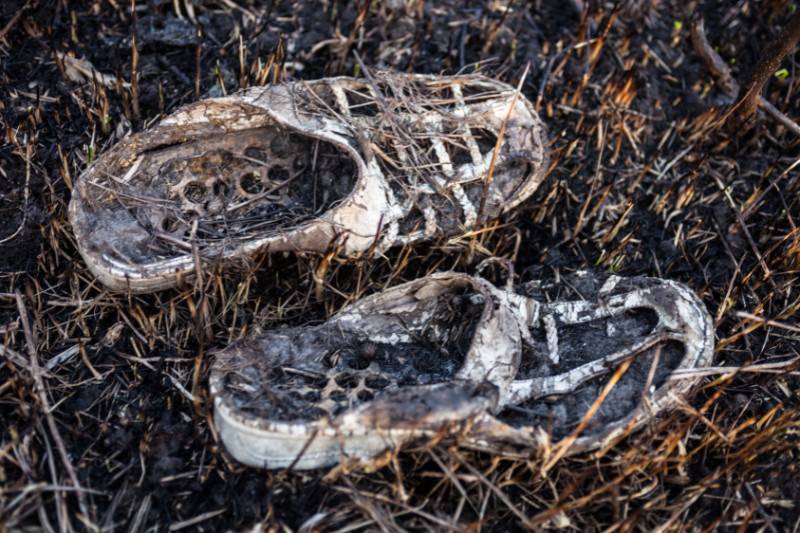
In our shared journey towards a sustainable future, every choice matters. And when it comes to footwear, the decision to opt for repairable shoes is a significant one. But why should we make this switch?
The Environmental Impact of Traditional Footwear
Every year, millions of shoes end up in landfills. These aren’t just the worn-out or broken ones; many are discarded simply because they’ve gone out of style. The environmental implications of this wasteful behavior are staggering.
Traditional footwear, especially those made from non-biodegradable materials, can take centuries to decompose, adding to our planet’s mounting waste problem.
The Long-Term Savings
Beyond the environmental benefits, there’s a compelling economic argument for repairable shoes. Think about it: How often have you replaced shoes because of minor issues like worn-out soles or scuffed leather?
With repairable shoes, especially brands offering repair services, these problems can be fixed at a fraction of the cost of new shoes.
Over time, the savings add up. Instead of buying a new pair of shoes every year or so, you can invest in high-quality, repairable sneakers or leather shoes that last much longer. And when they do show signs of wear, a visit to your local cobbler can breathe new life into them.
Unique Selling Points of Repairable Shoes
Repairable shoes aren’t just about sustainability and savings; they come with a host of unique features that make them stand out.
For instance, many of the best repairable shoes are handmade, ensuring attention to detail and quality.
Brands like Nisolo have even incorporated sustainable materials like waxed cotton laces, which not only last longer but also reduce environmental impact.
Moreover, the modular design of many repairable shoes means that components, from soles to laces, can be easily replaced. This not only extends the shoe’s lifespan but also allows for customization.
Want to switch up the look of your shoes?
With repairable footwear, it’s a breeze.
How to Repair Shoes By Yourself: A Step-by-Step Guide
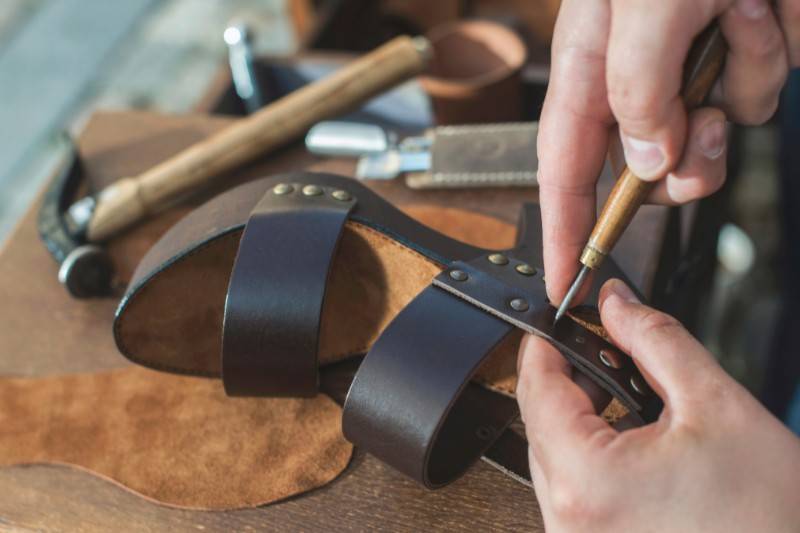
We’ve talked at length about the benefits of repairable shoes, but how do we actually go about repairing them?
Whether you’ve got a pair of handmade shoes that need some TLC or some repairable sneakers that have seen better days, I’ve got you covered.
Basic Tools Required for Shoe Repair
Before we dive into the repair process, let’s gather the essential tools:
- Shoe Repair Glue: For reattaching soles or other parts that have come loose.
- Leather Conditioner: Perfect for restoring the shine and health of repairable leather shoes.
- Waxed Cotton Laces: A sturdy replacement for worn-out laces.
- Brush and Cleaning Solution: To clean the shoe surface before any repair.
- Replacement Soles: Especially if you're looking to resole shoes.
- Needle and Thread: For minor stitching repairs.
Common Issues and How to Fix Them
1. Worn-Out Soles:
Clean the bottom of the shoe. Apply shoe repair glue to the new sole and press it onto the shoe. Allow it to dry as per the glue’s instructions.
2. Scuffed or Faded Leather:
Apply leather conditioner to the scuffed area using a soft cloth. Buff until the scuff diminishes and the shine returns.
3. Broken Laces:
Remove the old laces. Thread in the new waxed cotton laces, ensuring they’re of the right length for your pair of shoes.
4. Loose Stitching:
Using a needle and thread, carefully restitch the loose area, ensuring it aligns with the original stitching.
5. Shoes Losing Their Waterproofing Shine:
Clean the shoe surface. Apply a waterproofing solution or spray as per the product’s instructions.
Repairing shoes might seem daunting at first, but with the right tools and a bit of patience, it’s a task anyone can undertake.
Not only does it extend the life of your shoes, but it also reinforces our commitment to sustainable living. So, the next time you think of discarding a worn-out shoe, remember this guide and give repair a shot!
Top Brands Leading the Repairable Shoe Movement
The sustainable footwear industry is booming, with brands recognizing the need for durable, repairable, and eco-friendly options.
These trailblazers are not only offering high-quality shoes but are also making significant strides in reducing the environmental impact of the footwear industry.
1. Allbirds
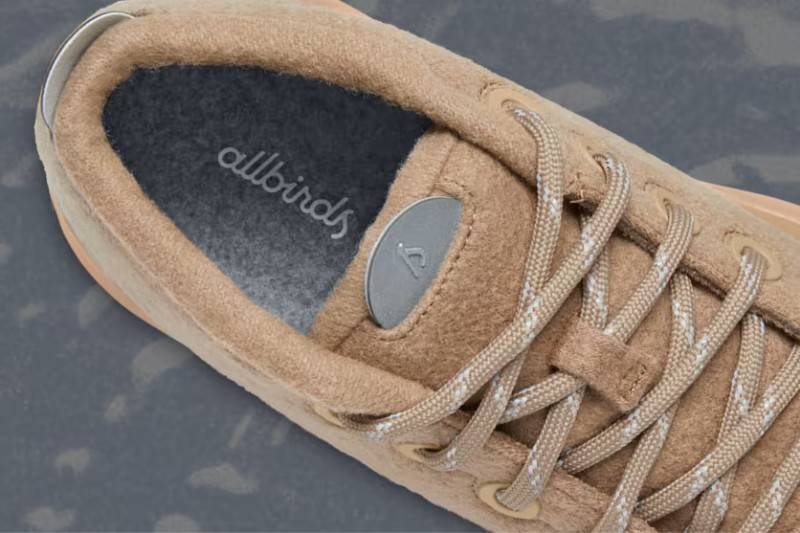
Image by Allbirds
Allbirds is renowned for its commitment to sustainability, offering both women’s and men’s footwear. Their Rerun collection provides slightly imperfect and gently used products, ensuring nothing goes to waste.
As a B Corp certified brand, they prioritize recycled, natural, and renewable materials and have achieved carbon-neutral footwear status.
They offer premium replacement insoles and replacement lace kits.
2. Able
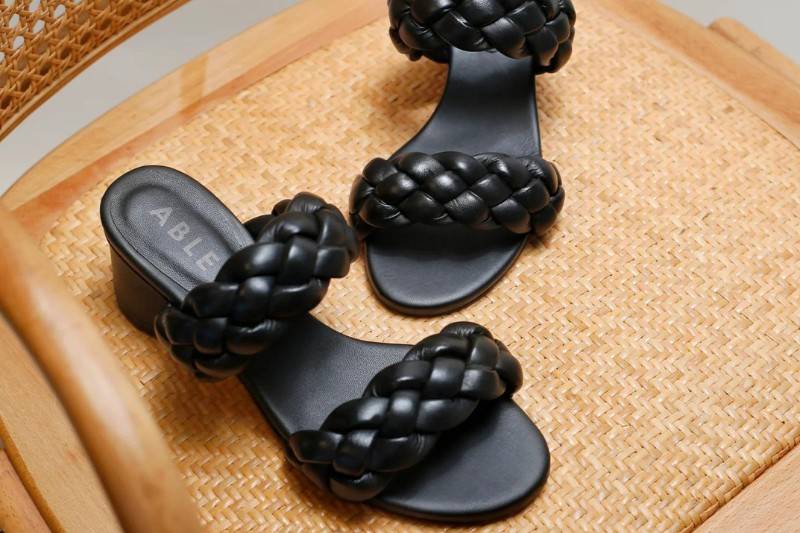
Image by Able
Able specializes in women’s footwear and stands out with its life-long product repair or replacement guarantee. They emphasize fair & transparent wages and use Leather Working Group Certified Leather.
Their packaging is 100% recyclable, and they hire women overcoming various challenges. Able offers life-long product repair or replacement guarantee.
3. Nisolo
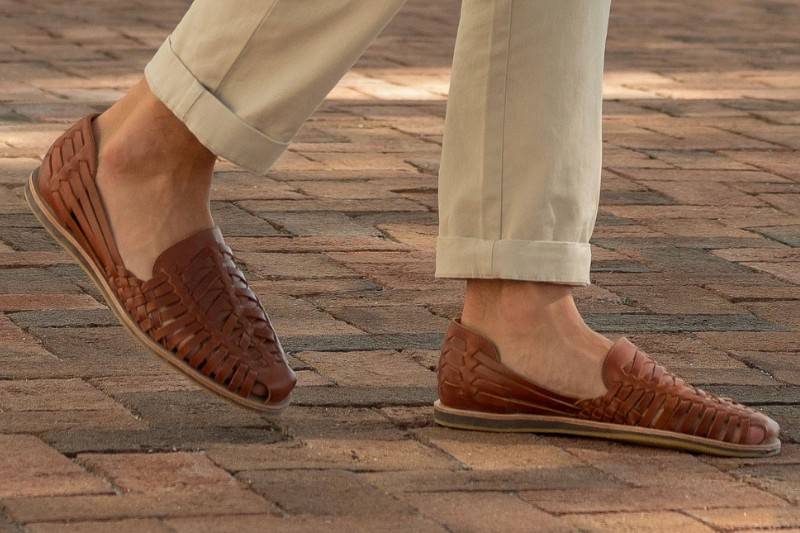
Image by Nisolo
Nisolo offers footwear for both women and men, emphasizing classically built leather models that most cobblers can easily repair.
They are a Certified B Corp and use Leather Working Group Certified leather. Additionally, they have a shoe reclamation program and are climate-neutral certified. Their commitment to sustainability is evident in their shoe reclamation program.
4. Vivobarefoot
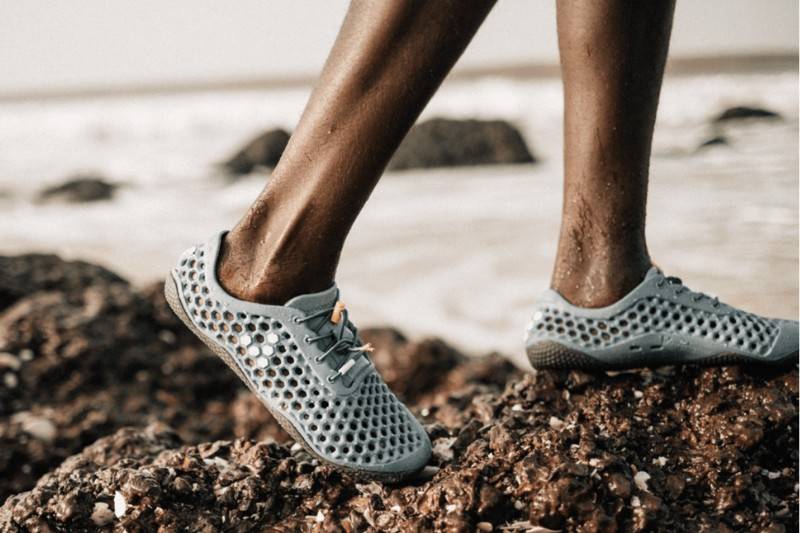
Image by Vivobarefoot
Vivobarefoot offers footwear for women, men, and kids. They provide a UK-based repair service and are developing partnerships with cobblers globally.
A significant portion of their shoes incorporate recycled plastic bottle components, and they have a line called Revivo that sells refurbished shoes at discounted prices.
5. Goral
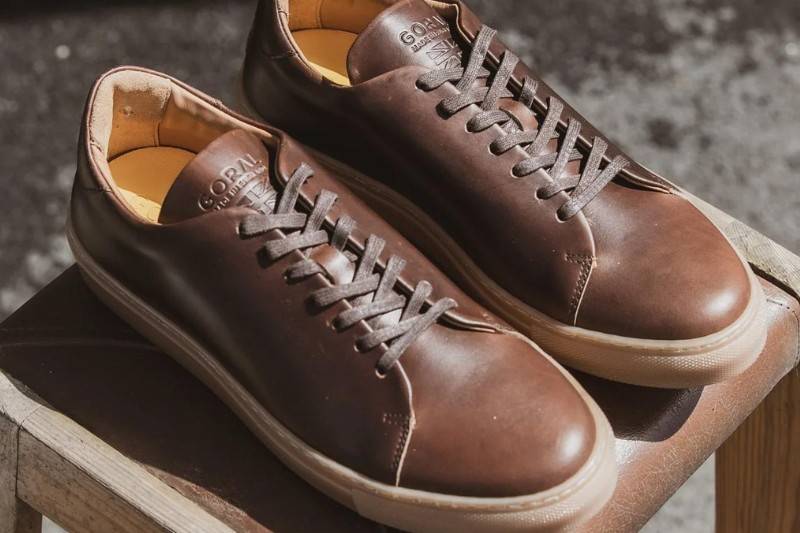
Image by Goral
Goral specializes in men’s footwear, handcrafted in their UK-based family workshop. Their shoes feature full grain leather or suede uppers, insocks, and linings. They have a collection called REPURPOSED that utilizes factory leftovers and scraps.
6. VYN
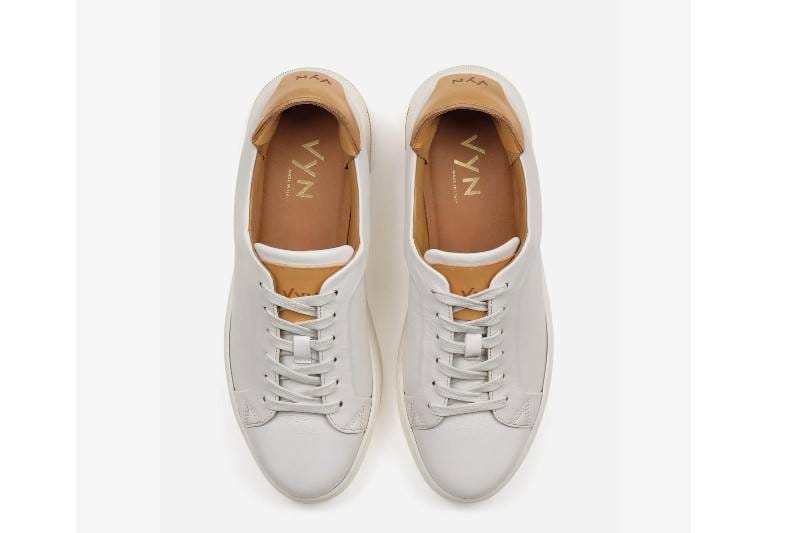
Image by VYN
VYN offers gender-neutral footwear and boasts the title of the world’s first repairable premium sneaker handcrafted in Italy. Their shoes have exchangeable parts to increase lifespan, and they prioritize natural materials sourced from European, certified suppliers.
7. Rothy's
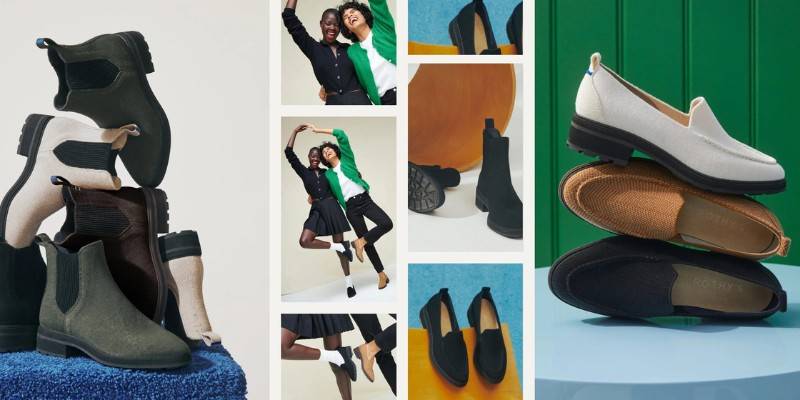
Image by Rothy’s
Rothy’s is known for its recycling program and its shoes made from recycled water bottles. Their footwear is vegan and cruelty-free, with natural and renewable soles.
8. Sezane
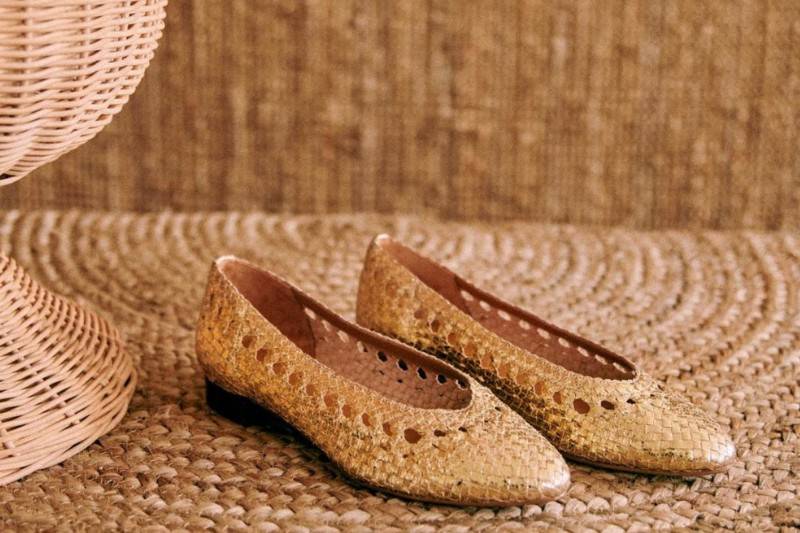
Image by Sezane
Sezane uses recycled and natural materials in their footwear. They prioritize vegetable-tanned leather and offer handmade pieces. They also have a philanthropic program to give back to the community.
Conclusion: The Future of Footwear is Repairable
As we’ve journeyed through the world of repairable shoes, one thing has become abundantly clear: the future of footwear is not just about style or comfort, but sustainability. The staggering number of shoes discarded every year, coupled with the environmental impact of their production, makes it imperative for us to rethink our choices.
Repairable shoes are not just a trend; they’re a testament to a growing awareness about our planet’s health and our role in preserving it. By choosing repairable footwear, we’re not just extending the life of our shoes but also reducing waste, conserving resources, and minimizing our carbon footprint.
But beyond the environmental benefits, there’s a personal satisfaction in knowing that our shoes can stand the test of time, that they can be mended and worn again. It’s a nod to the days when items were cherished, cared for, and passed down, rather than discarded at the first sign of wear.
To my friends who’ve been with me on this sustainable living journey, I urge you to make informed choices. Let’s prioritize quality over quantity, repair over replace, and sustainability over short-lived trends. The choices we make today will shape the world of tomorrow. And with repairable shoes, we’re taking a step in the right direction.
